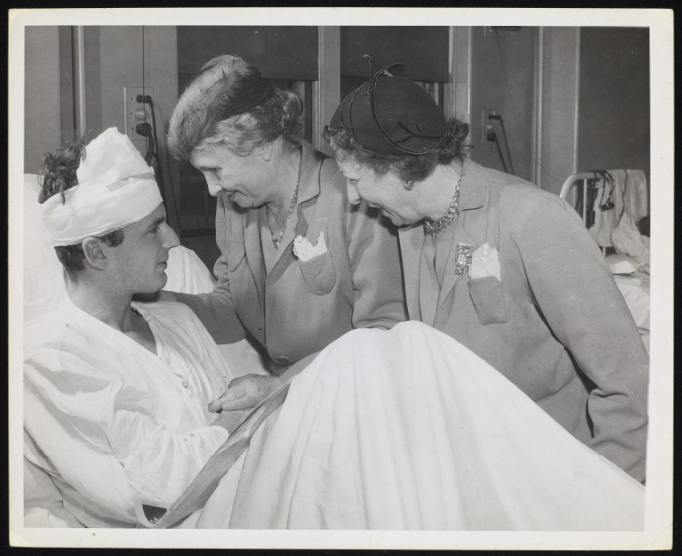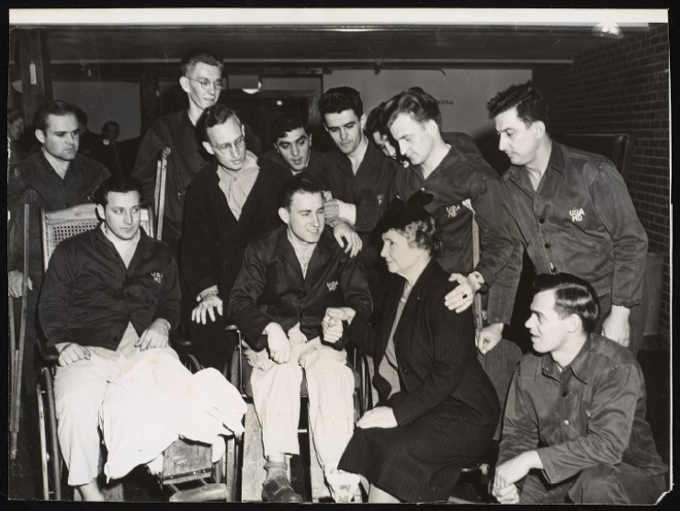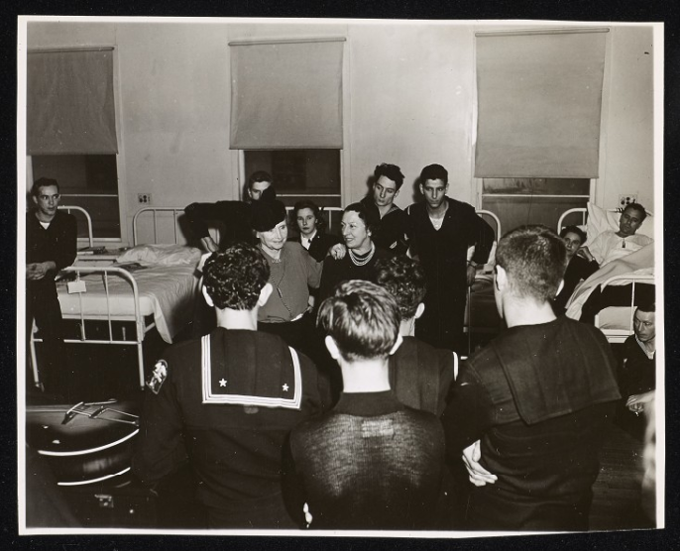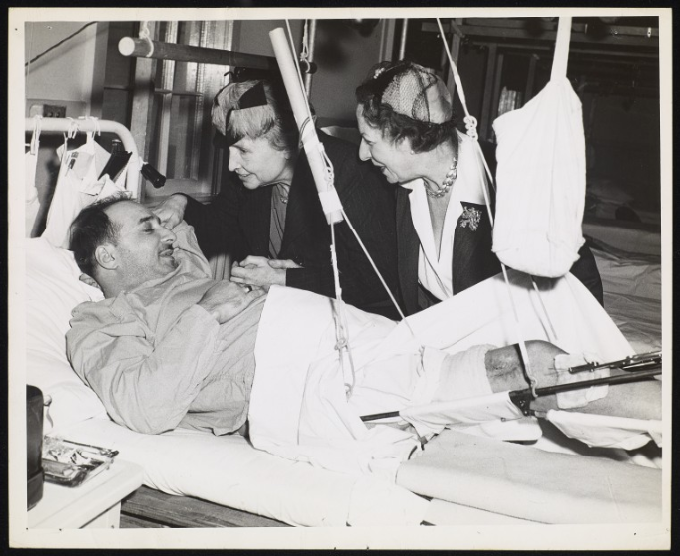Helen Keller was a witness to the disasters of war—more specifically, soldiers blinded in the First World War, the Second World War and the Korean War. In-depth information on Keller's involvement with blinded veterans, and her work to improve the economic, social and psychological lives of returning veterans are all documented in the Helen Keller Archive.


On behalf of AFB, between 1942 and 1944, Keller supported Senator Robert Wagner's efforts to secure funding for the rehabilitation, special vocational training, placement, and supervision of blind persons, including those blinded in World War II. Her understanding of the psychological impact of blindness on newly disabled veterans is readily apparent in a letter she wrote in 1945 to be distributed to parents of newly blinded soldiers. In the letter she sensitively and skillfully acknowledged the enormous blow that had befallen these men, but warned against pity. In this letter, she speaks about the soldiers’ new rehabilitation skills, and encourages each parent to respond with joy when their son returns home.


Keller visited hospitals during all three wars. Her first-hand experiences are documented in travel schedules (between November 1944 and May 1946 she and her traveling companion Polly Thomson visited over 70 Army hospitals around the United States), letters demanding amendments to the social security act and rehabilitation services, letters to her from grateful Army Hospital personnel as well as images and film footage.
On this Veterans Day, we salute our men and women of the armed forces. Following in Keller’s footsteps, the American Foundation for the Blind remains committed to assisting our nation’s veterans coping with vision loss.